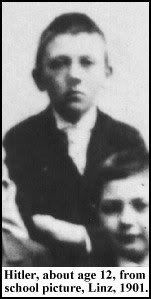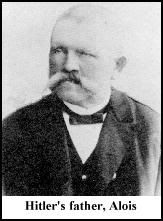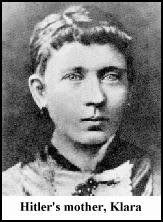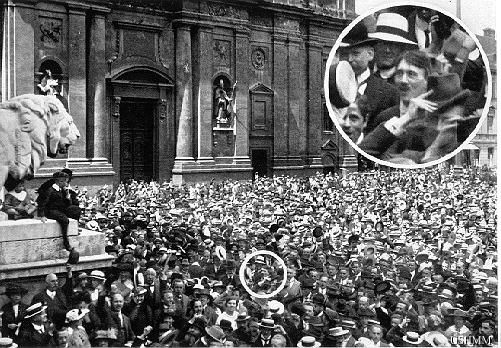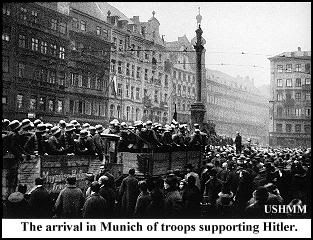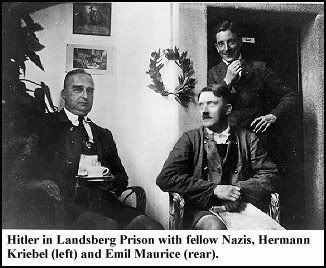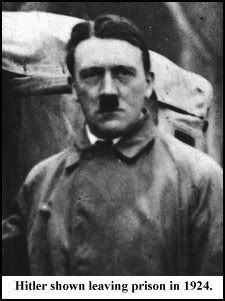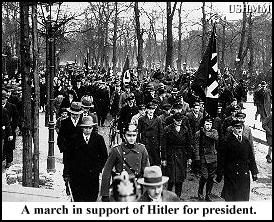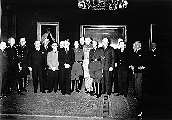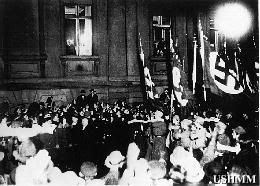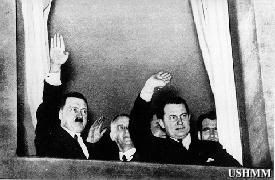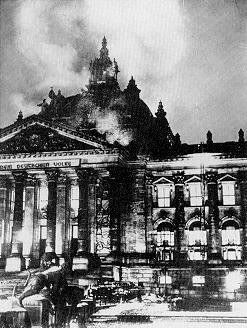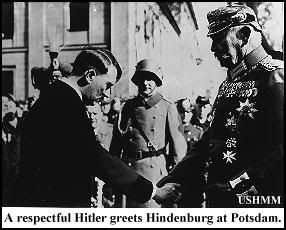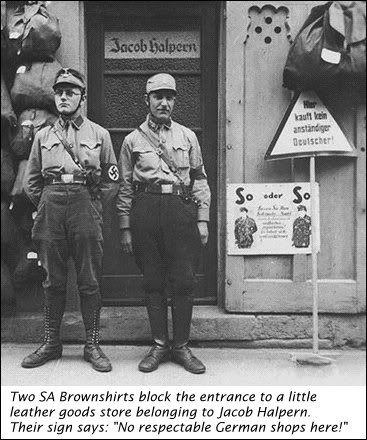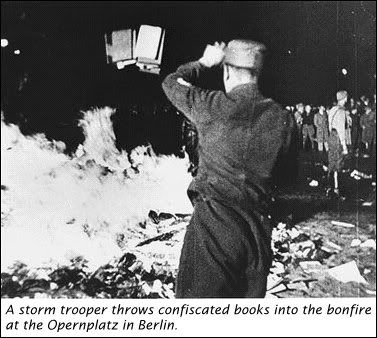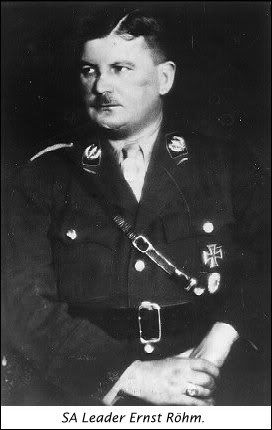As most of you know I am from Germany. Born and raised and (unfortunately) still living there most of the time.
In the last 2 years I got to know a lot of people from all over the world… the States, Canada, Australia, Europe. Most of them are like ‘Oh hey, it’s cool that you are from Germany’ but of course there were also those uneducated retards that called me a ‘Nazi’ just simply cos of the fact that I am a German. They never talked to me, they never got to know me, they never even tried but called me ‘Nazi’… maybe cos they thought it was cool and funny… I dunno but it does bother me sometimes.
Another thing that usually bothers me is seeing ‘funny’ Hitler pictures in forums. I never say anything about it unless someone posted it cos of me, cos I’m German (which already happened) but I sure as hell don’t find it funny but that’s just me *shrug*
Yes, we Germans have a ‘bad’ history, yes we started the 2 World Wars, yes we supported the NS-Regime, yes we killed millions of Jews for no reason, yes there are still idiots out there that think Hitler was cool, Hitler was amazing, Hitler was the best but they are not only from Germany. There are NS supporters in the States, in Canada, in Australia, the Netherlands, etc. but no one knows or people ignore it. I dunno.
The whole project will take me some time tho cos I have to look thru tons of material and translate some of it, so please do not expect a new post every day… hell, every week will be quite hard…
I will start with some sort of biography… a very very long and detailed one.
Main source was http://www.historyplace.com... but I was doing quite a bit of reading too… my old stuff from HS and certain magazines… but they were saying basically the same and that way there was no need to translate . Also on that website there is more information… a whole lot more info.
. Also on that website there is more information… a whole lot more info.
~TS
Sources:
In the last 2 years I got to know a lot of people from all over the world… the States, Canada, Australia, Europe. Most of them are like ‘Oh hey, it’s cool that you are from Germany’ but of course there were also those uneducated retards that called me a ‘Nazi’ just simply cos of the fact that I am a German. They never talked to me, they never got to know me, they never even tried but called me ‘Nazi’… maybe cos they thought it was cool and funny… I dunno but it does bother me sometimes.
Another thing that usually bothers me is seeing ‘funny’ Hitler pictures in forums. I never say anything about it unless someone posted it cos of me, cos I’m German (which already happened) but I sure as hell don’t find it funny but that’s just me *shrug*
Yes, we Germans have a ‘bad’ history, yes we started the 2 World Wars, yes we supported the NS-Regime, yes we killed millions of Jews for no reason, yes there are still idiots out there that think Hitler was cool, Hitler was amazing, Hitler was the best but they are not only from Germany. There are NS supporters in the States, in Canada, in Australia, the Netherlands, etc. but no one knows or people ignore it. I dunno.
The whole project will take me some time tho cos I have to look thru tons of material and translate some of it, so please do not expect a new post every day… hell, every week will be quite hard…
I will start with some sort of biography… a very very long and detailed one.
Main source was http://www.historyplace.com... but I was doing quite a bit of reading too… my old stuff from HS and certain magazines… but they were saying basically the same and that way there was no need to translate
~TS
Sources:
- Informationen zur politischen Bildung – Nationalsozialismus I und II (basically 2 magazines with 70 pages each about National Socialism)
- My Brain
Last edited:

